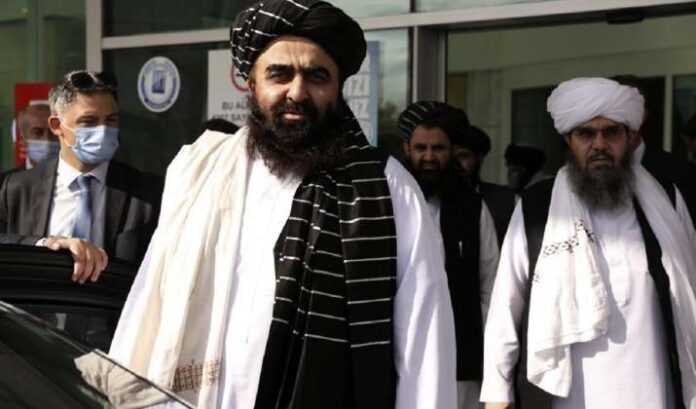
| Translate This News In |
|---|
According to a top UN official, the Taliban has promised him that “very soon” all Afghan girls will be able to attend secondary schools. Balkh, Jawzjan, and Samangan in the northwest, Kunduz in the northeast, and Urozgan in the southwest, according to UNICEF Deputy Executive Director Omar Abdi, who visited Kabul last week, have permitted girls to attend secondary school.
The Taliban’s education minister told him that they are working on a “framework” that will allow all girls to continue their education beyond sixth grade, and that it will be released “within a month or two.”
“As I speak to you today, millions of females in secondary school are missing school for the 27th day in a row,” Abdi said. “Every day we put off is a day squandered for the girls who are out of school,” said the group.
Girls and women were denied the right to study and were forbidden from working and public life during the Taliban’s prior rule in Afghanistan, which lasted from 1996 to 2001.
The Taliban have come under increasing international pressure to safeguard women’s rights to education and work since their takeover of Afghanistan on August 15 as US and NATO soldiers were in the latter stages of a chaotic withdrawal from the country after 20 years.
Abdi said he encouraged the Taliban “to allow girls to resume their education” in every meeting, calling it “important for the girls themselves and for the country as a whole.”
Only one million Afghan children were in school at all levels when the Taliban were driven from power in 2001 by a US-led coalition for harbouring Osama bin Laden, the architect of the 9/11 attacks on the US, he added.
According to Abdi, that number has risen to about 10 million children at all levels during the last 20 years, including 4 million girls, and the number of schools has tripled from 6,000 to 18,000 in the last decade.
“We must sustain, not undo, the educational gains made over the last two decades,” he stated.
Despite this development, 4.2 million Afghan children, including 2.6 million girls, are out of school, according to the UN Children’s Fund’s deputy chief.
Even if all females are permitted to attend secondary school, Abdi believes that efforts must be taken to overcome conservative opposition to their receiving a secondary education.
“The officials I’ve met say that if they put in place the system that they’re working on, it will persuade more parents to send their daughters to school,” he added, because it will alleviate worries in traditional societies about girls and boys being separated, as well as female teachers.
“As a result,” Abdi continued, “that will have to be observed.”
The UNICEF deputy chief visited a children’s hospital in Kabul, where he was “struck to see how filled it was with hungry children, some of them babies.”
According to Abdi, the health system and social services are on the edge of collapsing, medical supplies are critically low, measles and watery diarrhoea epidemics are on the rise, and polio and COVID-19 remain major threats.
“Even before the Taliban gained power, at least 10 million children across the country needed humanitarian assistance to survive,” he said, “and at least one million of these children are at risk of dying from severe acute malnutrition if they are not treated soon.”
UN Secretary-General Antonio Guterres asked the international community to support the Afghan people and avoid the Afghan economy from collapsing, a call echoed by Abdi, who stated that “the situation is severe and will only grow worse.”

















